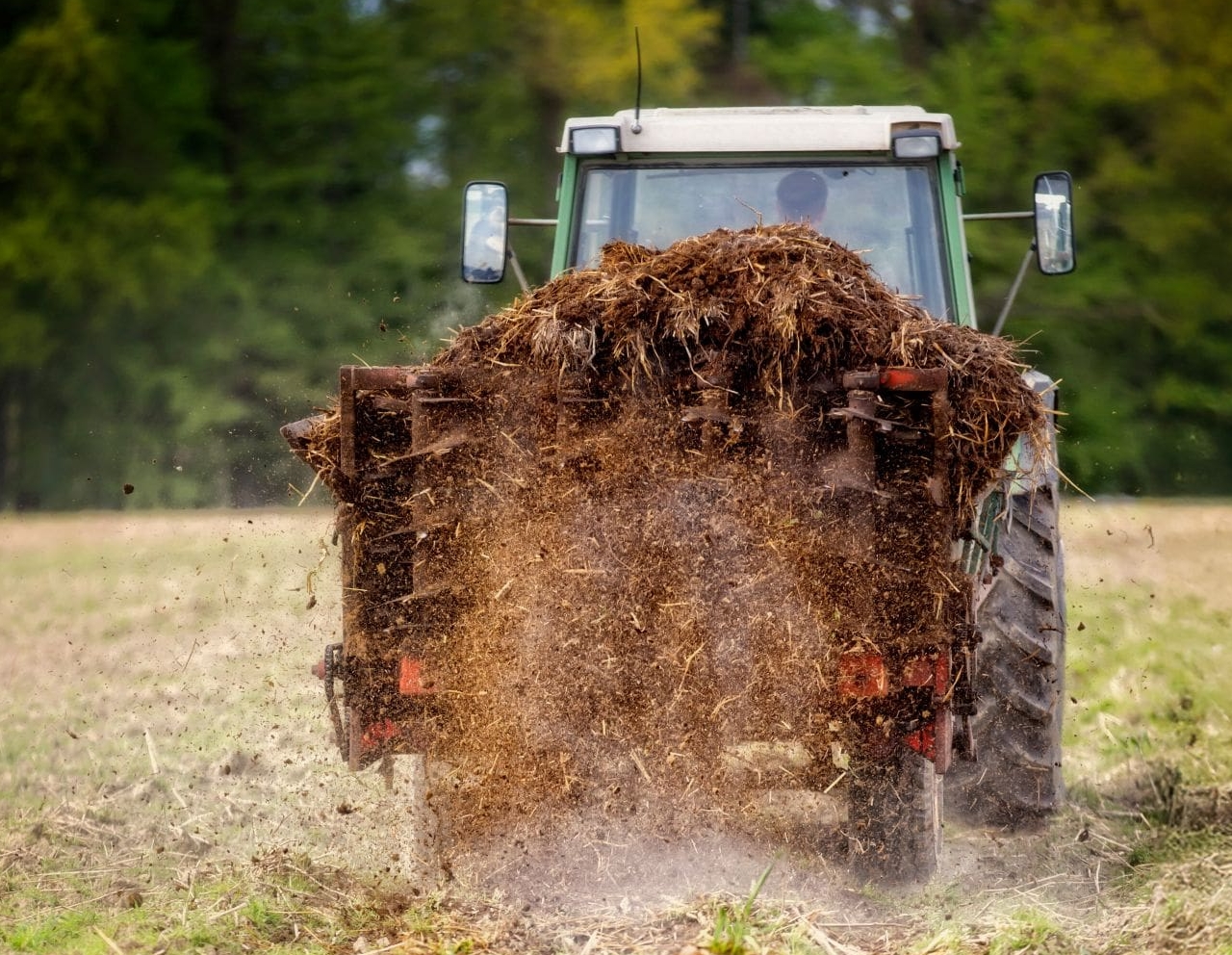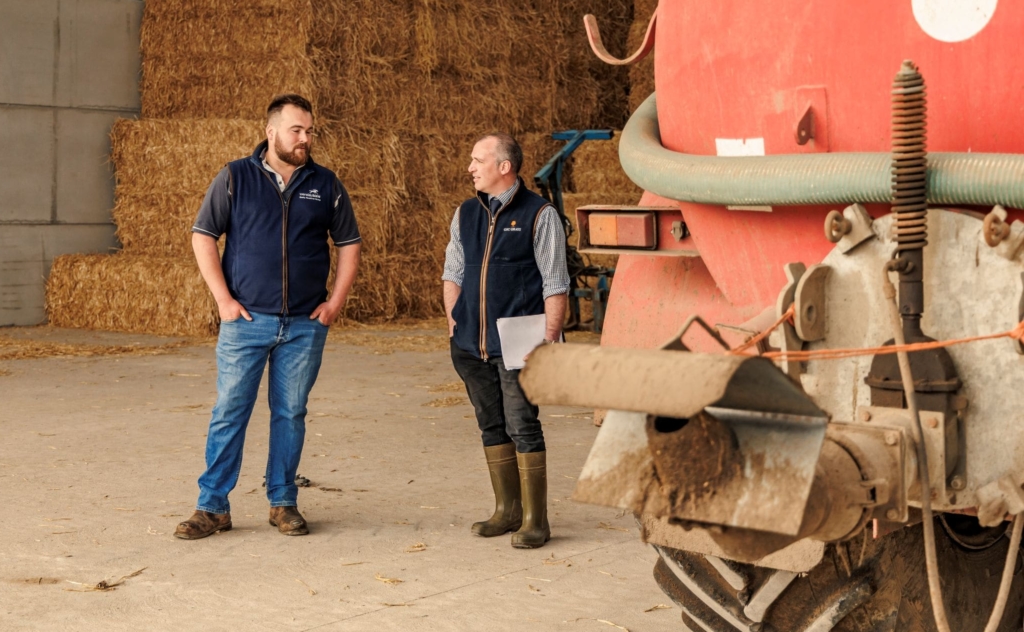Contact our offices
Main office
COLBURN
5 & 6 BAILEY COURT
COLBURN BUSINESS PARK
RICHMOND
NORTH YORKSHIRE
DL9 4QL
Estate Agency Offices are located in
BARNARD CASTLE, BOROUGHBRIDGE & RICHMOND
Residential Management Team
Our Offices
- Alnwick
01665 568310
Email Officealnwick@gscgrays.co.uk - Barnard Castle
01833 637000
Email Officebarnardcastle@gscgrays.co.uk - Boroughbridge
01423 590500
Email Officeboroughbridge@gscgrays.co.uk - Chester-Le-Street
0191 3039540
Email Officechester-le-street@gscgrays.co.uk - Colburn
01748 897630
Email Officecolburn@gscgrays.co.uk - Driffield
01377 337180
Email Officedriffield@gscgrays.co.uk - Hamsterley
01388 487000
Email Officehamsterley@gscgrays.co.uk - Hexham
01434 611565
Email Officehexham@gscgrays.co.uk - Kirkby Lonsdale
01524 880320
Email Officekirkbylonsdale@gscgrays.co.uk - Penrith
01768 597005
Email Officepenrith@gscgrays.co.uk

Is there still truth in the adage, ‘where there’s muck there’s brass’?
The age-old saying, “where there’s muck there’s brass”, reflects a practical truth familiar to generations of farmers. Livestock manures and slurries have long played a vital role in building soil health and reducing dependency on synthetic fertilisers. Whether produced on-farm or imported, these organic materials continue to offer agronomic and economic value.
However, in today’s highly regulated landscape, the way farmers manage, store and apply organic manures is under greater scrutiny than ever before. From environmental regulations to planning policy, the rules governing organic manure are shifting, and the implications are wide-reaching.
So, is muck still a resource, or is it becoming a liability? The answer lies in careful management, compliance, and an eye on new opportunities.
A Resource Worth Managing Properly
Organic manures are undeniably valuable. In the right conditions, they improve soil structure, enhance microbial activity, and provide slow-release nutrients. Used responsibly, they can reduce the need for high-carbon synthetic fertilisers and support long-term soil health.
In recent years, spiking prices for nitrogen fertilisers have prompted more farmers to maximise manure/slurry usage. This shift has sometimes led to applications later in the season or on standing crops.
As attention turns to water quality and pollution risks, regulators and planning authorities are tightening controls. Manure, once regarded as a straightforward by-product, is now increasingly treated as a material of concern, particularly when storage or use is poorly managed.
Understanding the Regulatory Landscape
Historically, regulatory breaches often resulted in reduced subsidy payments. But as cross-compliance fades and more rules are embedded in environmental law, the consequences of non-compliance can be serious. The Environment Agency is increasing recruitment for on-farm inspections, and a more rigorous enforcement regime can be expected. Understanding the rules, which apply to all imported organic manures/materials, is essential to avoid costly setbacks and to make the most of potential benefits.
- Farming Rules For Water
The Farming Rules for Water (FRfW), introduced in 2018, set out mandatory requirements for managing nutrients and preventing water pollution from agricultural activities. Key requirements include:
- Nutrient applications must be planned to meet crop and soil needs—without excess.
- Soil must be tested at least every five years for key nutrients and pH.
- Manures and fertilisers must not be applied when ground is waterlogged, frozen, or at risk of runoff.
- Buffer zones must be observed near watercourses.
- Measures must be in place to prevent soil erosion and compaction.
- Manure storage must avoid proximity to watercourses, springs, and boreholes.
These rules apply to all farmers in England and are enforced by the Environment Agency through farm inspections. The Environment Agency adopts an advice-led, proportionate approach during inspections, offering guidance tailored to individual circumstances and pursuing sanctions only when necessary. This approach has successfully brought many farms back into compliance. However, if farmers fail to act, the Environment Agency will not hesitate to impose sanctions–including penalties, formal cautions, or prosecutions.
- Nitrate Vulnerable Zones
Nitrate Vulnerable Zones (NVZs) are areas identified as being at high risk from agricultural nitrate pollution. Approximately 55% of all land in England is currently designated as NVZs. As of 12th February 2025, new NVZ designations will apply for the 2025–2028 period. For farms within these areas, the NVZ rules go beyond the baseline set by the FRfW. Requirements include:
- Strict limits on nitrogen applications.
- Minimum slurry storage capacities.
- Prohibited spreading periods.
- Detailed record-keeping obligations.
Those involved in the Sustainable Farming Incentive (SFI) may be paid under options such as NUM1 (£652/year) for maintaining compliant nutrient management records/plans. However, NVZ rules still apply regardless of any SFI agreement.
These rules are enforced by the Environment Agency in accordance with its published enforcement and sanctions policy and guidance.
- SSAFO Regulations and IPPC Permits
Compliance with SSAFO (Silage, Slurry and Agricultural Fuel Oil) rules is essential. These regulations govern the construction and maintenance of slurry stores, silage clamps and fuel tanks, ensuring they meet minimum standards to prevent pollution.
Breaches may result in:
- Fines up to £5,000 in Magistrates’ Court.
- Unlimited fines in Crown Court for serious offences.
Some larger, intensive livestock units must also obtain an Integrated Pollution Prevention and Control (IPPC) permit. This process is often complex, time-consuming, and costly—but essential for legal operation.
The Environmental Permitting Regulations are currently under review, with faster enforcement and tougher penalties expected to follow.
- Waste Exemptions
Historically, many routine farm activities such as spreading waste on agricultural land fell under ‘waste exemptions’ that did not require a permit. However, from 1st April 2025, the EA has introduced new charges for both registering and renewing these exemptions. These include a one-off registration or renewal fee, along with ongoing compliance charges.
These changes are designed to support enforcement and reduce waste-related crime. However, they also increase costs and administrative burdens for already-stretched farm businesses.
There are four main categories of waste exemption: storing, treating, using, and disposing of waste. Each category has specific conditions that must be met. Failure to meet these—whether through oversight or misunderstanding—can now lead to:
- Loss of exemption status.
- Financial penalties.
- In serious cases, legal action.

Recent Case Law
Herefordshire Council recently defended its actions in the High Court against a challenge from the NFU concerning planning controls on agricultural waste management. The dispute arose from a planning application for a poultry unit, where the council sought to apply local planning policy to regulate the handling of agricultural waste. The NFU argued that such activities are already subject to comprehensive statutory regulation — including the Farming Rules for Water — and should not be further controlled through planning.
However, the High Court dismissed all the NFU’s challenges, ruling that councils can impose additional planning rules to protect water quality, even if this involves reclassifying manures as industrial (rather than agricultural) waste. Notably, the court also criticised the Farming Rules for Water, stating they had “beyond any doubt failed to protect the environment from harm,” supporting the Council’s rationale for intervention.
This judgment signals that planning applications for agricultural development — especially those near sensitive areas or watercourses — are likely to face greater scrutiny. Local planning policies can place additional controls and restrictions that may delay approval, increase costs, or result in refusal, even for developments that traditionally benefitted from planning leniencies afforded to agriculture. As each council may interpret their responsibilities differently, early due diligence on proposed agricultural development will be time well spent.
Turning Muck Into Market Opportunity
Aside from spreading on grassland or on arable crops as part of a mixed farming system, there are other opportunities to generate value from manures and slurries. Processing manure into saleable products can offer both environmental and commercial benefits. Examples include:
- Pelletising chicken manures for sale into the horticultural market.
- Supplying poultry litter manures to anaerobic digestion (AD) plants for energy production.
These ventures often require significant capital investment and careful business planning but represent an innovative way of transforming a potential problem into profit.
Is There Still Brass in Muck?
The answer is still “yes”—but only if it is handled with care, foresight and compliance. As the definition of manure shifts from resource to regulated waste in some contexts, farmers must be alert to the legal and practical implications. Managed properly, organic manures remain a cornerstone of resilient, productive farming. Handled incorrectly, they can quickly become a costly liability.
With the right advice, tools and investment, manure still has a vital place in modern farming, but the days of informal management are over.
Where We Can Help
With regulation tightening and opportunities evolving, having the right support is crucial. Our team can assist in several areas:
- Nutrient Planning and Record Keeping: Our advisors can support farmers in complying with NVZ rules, Farming Rules for Water and SFI nutrient management obligations.
- Grant Applications: Recent rounds of the Farming Equipment and Technology Fund (FETF) include support for slurry management and precision application tools. Capital Grants are also expected to return in 2026, having covered the following four categories in 2025: water quality, air quality, natural flood management, boundaries, trees and orchards.
- Regulatory Guidance: We can help farmers understand and navigate waste exemptions, planning implications, and environmental compliance.
- FACTS-Qualified Advisors: We have a number of FACTS-Qualified advisors within our Farm Business department ready to provide support.










